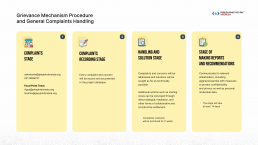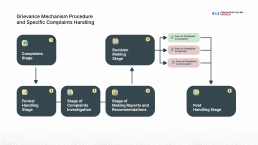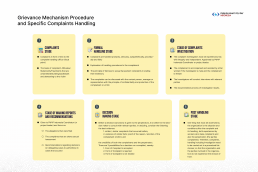I. Background
Social accountability and transparency program in extractive sector is project that is implemented by Publish What You Pay Indonesia with support and cooperation from Global Partnership for Social Accountability (GPSA) – World Bank to raise the mechanism of social collaboration and accountability, especially in the aspect of licensing and revenues management of extractive sector of mineral and coal in Indonesia. The program is implemented in the (3) three provinces (Aceh, East Kalimantan and Southeast Sulawesi) with at least one producing regency as assisted areas as from communities around mining areas. The program has 3 (three) CSOs implementing partners at the sub-national level: GeRAK in Aceh, Pokja-30 in East Kalimantan, and LePMIL in Southeast Sulawesi, and 3 (three) Institutions implementing at national level (Aspac Polgov UGM, FITRA, and Awrago). The program starts from November 2020 until March 2022. Social Accountability program in extractive sectors. The program is partnered with the provincial government in three areas, and the central government, especially EITI Secretariat in The Ministry of Energy and Mineral Resources. The aim of this program is to accelerate the improvement of governance and management of the extractive sector (mineral and coal) in Indonesia.
Grievance and feedback mechanism in the GPSA Program PWYP Indonesia is a system and resource that is formed by GPSA Program and is intended to address things regarding implementation of the program and potential impact from a policy, program and implementation that is implemented by external stakeholders through GPSA Program. In this case, the implementation of the program in particular is the effort to enforce and comply with the social and environmental safeguards formed and compiled by the focal point team together with the national secretariat of PWYP Indonesia.
II. Scope of Work (Grievance Redress Mechanism)
The scope of grievance and redress mechanism consist of the general and specific case. The general case is related but not limited to:
- Form of complaints related with implementation of social standard as written in the Environmental and Social Commitment Plan (ESCP), for example: related to labour, information disclosure, stakeholder involvement, social inclusions, protection of women-girl and minority groups, etc.
- Form of complaint related with implementation of environmental standard as written in the Environmental and Social Commitment Plan (ESCP), for example: related to health and safety, protection and prevention from spreading of diseases (COVID-19), protection and prevention from environmental risk, travel risk and activity, maternal and child health and vulnerable groups, and so on.
The specific case is complaints that is related with sexual harassment to women, gender and social group discrimination, etc. the example are:
- Forms of complaints related to casuistic violations, for example relating to forms of sexual harassment (unwanted touching and leading to sexual acts, unwanted verbal remarks/comments about personal life and body parts and appearance of a person, non-verbal/gestures) i.e. body language or body movements with a sexual tone, visual harassment showing pornographic material in the form of photos, posters, etc., psychological/emotional harassment, namely unwanted requests and invitations, etc.
- Other forms of complaints that are specific in nature, involve individuals and require individual/private handling.
III. Grievance Mechanism Procedure and General Complaints Handling


2. Complaints Recording Stage
Every complaint and concern will be record and documented in the project database.

3. Handling and Solution Stage
Complaints and concerns will be addressed and solutions will be sought as far as technically possible. Additional actions such as sharing views can be conveyed through direct dialogue, mediation, and other forms of collaborative and constructive settlement.
*Complaints resolution will be monitored for (1 week)

4. Stage of Making Reports and Recommendations
Communicated to relevant stakeholders, including aggrieved parties with measures to protect confidentiality and privacy as well as personal/individual data.
*The stage will take at least 14 days)*
IV. Grievance Mechanism Procedure and Specific Complaints Handling

1. Complaints Stage
- Complaints in form of text to the complaint handling officer (focal point)
- The basis of complaint: Attitudes/Statements/Treatments that are unwanted/disturbing/unpleasant and demeaning to the victim

2. Formal Handling Stage
- Complaints are handled promptly, seriously, sympathetically, procedurally and fairly
- Explanation of handling procedures to the complainant
- The principle of fairness to sexual harassment complaints in stating their testimony
- The complaints can be discussed with the contact person, manager or representative with the principle of confidentiality and protection of the complainant or victim

3. Stage of Complaints Investigation
- The complaint investigators must be experienced, fair, with integrity and independent. Appointed by PWYP Indonesia Coordinator or project leader.
- The complainant is accompanied and assisted by other women if the investigator is male and the complainant is female
- The Investigators will conduct interviews with relevant parties
- The documentation process of investigation results.

4. Stage of Making Reports and Recommendations
- Given to PWYP Indonesia Coordinator (or project leader) and focus on:
- The allegations that were filed
- The complaints that are shows sexual harassment
- Recommendations regarding decisions (or delegating cases to authorities) in cases that occured

5. Decision Making Stage
Before a decision (sanctions) is given to the perpetrators, it is better for the decision maker to consult with relevant parties. In deciding, consider the following: the best evidence:
- similar / similar complaints that occurred before;
- evidence of similar facts; proof of the reason / emotion of the complainant (victim); and
- the credibility of both the complainants and the perpetrators.
There are 3 possibilities for a decision on a complaint, namely:
- Form of Complaint is accepted
- Form of Complaint is rejected
- Form of Complaint is not treated

6. Post Handling Stage
One thing that must be observed by the organization is the situation and conditions after the complaint and its handling, both experienced by workers who make complaints and also the perpetrators (the parties complained). Therefore, complaints, handling including investigation need to be carried out in a procedural fair manner, so that the organization and the parties involved in the organization do not experience the erosion of trust.


